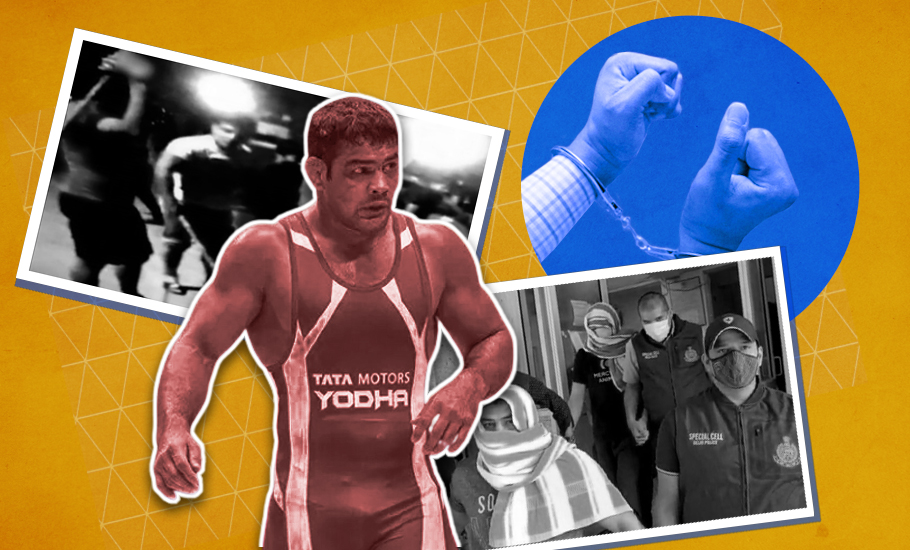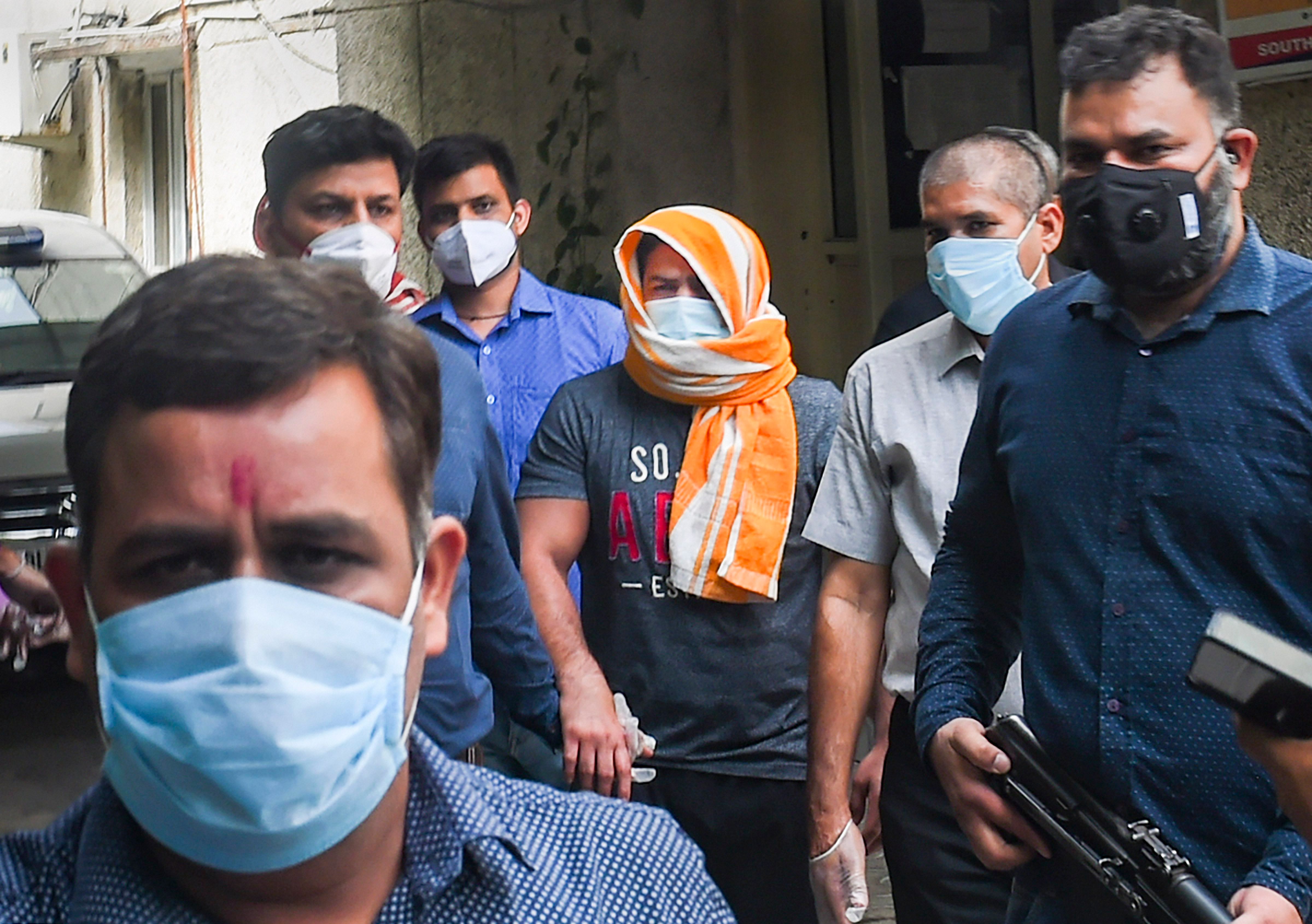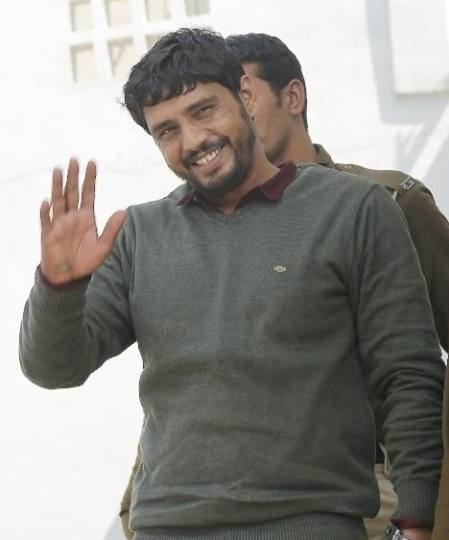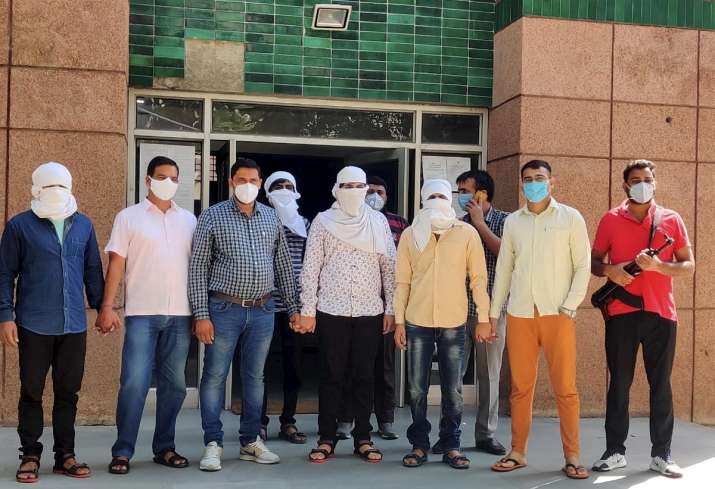
- Home
- India
- World
- Premium
- THE FEDERAL SPECIAL
- Analysis
- States
- Perspective
- Videos
- Sports
- Education
- Entertainment
- Elections
- Features
- Health
- Business
- Series
- In memoriam: Sheikh Mujibur Rahman
- Bishnoi's Men
- NEET TANGLE
- Economy Series
- Earth Day
- Kashmir’s Frozen Turbulence
- India@75
- The legend of Ramjanmabhoomi
- Liberalisation@30
- How to tame a dragon
- Celebrating biodiversity
- Farm Matters
- 50 days of solitude
- Bringing Migrants Home
- Budget 2020
- Jharkhand Votes
- The Federal Investigates
- The Federal Impact
- Vanishing Sand
- Gandhi @ 150
- Andhra Today
- Field report
- Operation Gulmarg
- Pandemic @1 Mn in India
- The Federal Year-End
- The Zero Year
- Science
- Brand studio
- Newsletter
- Elections 2024
- Events
- Home
- IndiaIndia
- World
- Analysis
- StatesStates
- PerspectivePerspective
- VideosVideos
- Sports
- Education
- Entertainment
- ElectionsElections
- Features
- Health
- BusinessBusiness
- Premium
- Loading...
Premium - Events

Grounded: What's luring Punjab, Haryana sportsmen to the world of crime
Aggression and competition are factors that influence sportsmen in Punjab and Haryana to lean towards crime and gangsters, which gives them power and money.

In 2004, Mehal Singh Bhullar from Bodla village of Muktsar district in Punjab sent his son Harjinder to the Government Arts and Sports College in Jalandhar as he wanted him to represent India in discus throw and to win gold for the nation in Olympics. “Harjinder was a bright sportsman. People used to call him Vicky in primary school. He used to spend most of his time on the ground...
In 2004, Mehal Singh Bhullar from Bodla village of Muktsar district in Punjab sent his son Harjinder to the Government Arts and Sports College in Jalandhar as he wanted him to represent India in discus throw and to win gold for the nation in Olympics.
“Harjinder was a bright sportsman. People used to call him Vicky in primary school. He used to spend most of his time on the ground practising. That is why he was given the name Vicky Gounder. He was strong and won many gold medals at the college. His father and I were sure that he had a bright future in the game,” Parnam Singh, his college coach, tells The Federal.
But little did they know then that Vicky’s fate was taking him to a dark world of crime. During his college days, Vicky met Navpreet Singh, popularly known as Lovely Baba. When they left college in 2007, Lovely introduced Vicky to local gangsters Prema Lahoriya and Sukha Kahlwan.
Three years later, Kahlwan killed Lovely in a clash. Vicky, being his close friend, pledged to kill Kahlwan. He waited for his time as the latter was in jail. Then in 2015, when Kahlwan was being taken back to jail from a district court, Vicky broke the security and killed him.
Vicky was arrested immediately but he escaped from prison in November 2016. Later, he killed a local politician Jaswinder Singh Rocky and also shot dead four members of a rival gang in Gurdaspur district of Punjab.
From a promising sportsperson, Vicky soon became Punjab’s most wanted criminal.
In 2018, the Punjab Police killed him in an encounter at the Punjab-Rajasthan border.
Sushil Kumar’s arrest
Vicky’s father Mehal Singh refused to comment, saying he had disowned his son in 2010 itself but he must have remembered him when news channels flashed images of Olympic medallist wrestler Sushil Kumar being escorted by Delhi Police a few weeks back for the alleged murder of a junior wrestler.
In the next few days, more skeletons tumbled out of the closet of the two-time Olympic medallist, who many looked up to, especially the aspiring athletes from Punjab, Haryana and Delhi.
According to reports, Sushil was involved in a number of crimes and linked to dreaded gangsters like Neeraj Bawana, Sandeep Kala alias Kala Jathedi and Lawrence Bishnoi.

The junior wrestler, Sagar Dhankar was once Sushil’s student but apparently had a fallout and allegedly bad-mouthed him in front of other wrestlers at Chhatrasal Stadium in Delhi where Sushil is a revered figure. Dhankar was also said to be staying in a flat in Model Town owned by Sushil’s wife and had not paid two months’ rent.
On May 4, Sushil and his aides kidnapped Dhankar and his friends and brought them to Chhatrasal stadium. Dhankar, who was the son of a Delhi police officer, got his friends to call a few gangsters known to them. A clash ensued and Sushil’s aides beat Dhankar and the others mercilessly. Sushil is said to have asked an aide to record a video of the incident to instill fear among other wrestlers. He also fired shots to intimidate them. Next day, Dhankar succumbed to injuries. Sushil Kumar fled Delhi and was arrested after three weeks of criss-crossing six states.
Boxer-gangster
Inspired by boxer Vijender Singh who won the bronze at the 2008 Beijing Olympics, Deepak Pahal from Sonipat district in Haryana started boxing at the age of 15. He had proved himself at the age of 16 when he was selected as a trainee by the Sports Authority of India’s Sonipat centre. Within a year, he became the junior national champion in the 57 kg category.
But soon, his luck ran out. After being suspended by the SAI for hitting a colleague and the ban on the Boxing Federation, he ended up without a penny in his pocket.
“Jobless and boutless Deepak met gangster Jitendra Mann alias Gogi during this time. Gogi used to take players of Haryana in his gang. In the world of crime, Pahal started feeling powerful and he gradually became an integral part of the gang,” says Anil Malik, Deepak’s coach.
In 2016, Deepak helped Gogi escape from jail. He was arrested within a few days but was soon released on bail. Deepak is accused of killing four people. In March 2021, he helped gangster Kuldeep Mann aka Fazza escape from jail. In April, Fazza was killed in a Delhi Police encounter but police are still looking for Deepak. He is wanted in a Maharashtra Control of Organised Crime Act (MCOCA) case for murder, extortion and robbery.
“In his first international bout in 2011, Deepak won a gold medal and his entire village rejoiced saying he would bring gold for India. His aim was to win a gold medal. He wanted to become famous,” says Anil.
Deepak won his first major title against Manish Kaushik and Amit Panghal and his coach considered him the best boxer at that time. Today Manish Kaushik and Amit Panghal have qualified for the Tokyo Olympics whereas Deepak Pahal is a most wanted criminal by Delhi Police, with a reward of ₹2 lakh.

Endless list
Sushil, Deepak and Vicky are not lone cases of sportsmen from Punjab and Haryana turning to gangsters and criminals.
“Similar is the story of numerous sportsmen in Punjab and Haryana who start their career with an aim to win a gold for the country but end up becoming a criminal. Sushil Kumar may be the most famous in the lot, but he is not the first, and certainly will not be the last,” says Sandeep Pahalwan, a wrestling coach based out of Haryana.
In the last five years, Haryana police have arrested nearly 80 athlete-turned-gangsters including state, national and international ones. Some prominent names include Shani Dev, a national kabaddi player who was involved in eight murders and a dozen other crimes.
Sanjeet Singh, a state kabaddi player, was involved in four murders and robbery. Sanjeev Kalia, a state-level wrestler was involved in more than 200 thefts. Sandeep Hooda, a national athlete, was involved in the gang rape of a Rohtak Dalit girl.
Punjab is another state that produces a high number of athletes many of whom eventually turn gangsters every year. Punjab Police arrested 533 criminals and gangsters last year and approximately 20 per cent had a sports background.
Vicky belonged to the gang of Jaipal Singh, who himself was a hammer thrower. Another of Jaipal’s gang members, Harinder Singh Tinu, was a shot putter and about to migrate to New Zealand when he came in touch with Jaipal.
Yet another member of the same gang was Shera Khuban alias Gurshahid Singh, also a hammer thrower. All of them were big-bodied and became extortionists first and later gangsters. Gangster Prema Lahoriya who had come in touch with Vicky at one point was a 100 metres hurdle sprinter.
The notorious Lawrence Bishnoi of the Kala Jathedi gang, wanted in over 20 cases of attempt to murder, carjacking, extortion, snatching and under Arms Act in Punjab, Haryana, Chandigarh and Rajasthan, was a kabaddi player once. His close aides, Sampat Nehra was a former national decathlon athlete and Rakesh Mokhriya was a former national gold medallist wrestler.
Power, security, money attracts
“Sportsmen are taught to be aggressive to win their game. This aggression slowly becomes a part of their overall nature. When they lose or do not get ample opportunities to use their power, they start using it in their daily life,” says Sher Singh, former IG of Police in Haryana.
“They are attracted towards a career which gives them power. They want people to be scared of them. The people of Haryana and Punjab are normally aggressive. These sportsmen have more aggression which they can’t control. They are also soft targets for gangsters,” he says.
Arjuna Awardee boxer Akhil Kumar, a DSP in Haryana Police, says, “Earlier, people used to play sports for fitness and learning but now, it is all about competition. Sportsmen are fighting a lot now just because of jealousy, which builds up a certain kind of enmity. This enmity further leads to gang-formation and crimes against each other.”

However, some experts say unemployment is leading sportsmen to crime. Sukhbir Kundu, a former athlete and manager of Sonipat Sports Stadium, says, “We talk about joblessness in engineering or in other fields but we never talk about joblessness in sports because sports is a part-time thing in India.”
“Haryana and Punjab collectively produce a million sportsmen every year and only 100 become successful. What do you think others do? Many come from uneducated and poor backgrounds with dependent families. They are on the radar of gangsters who attract them by showing money and a good lifestyle, so sportsmen fall in their trap,” he explains.
The government and authorities say they are taking every possible step to stop sportsmen from falling prey to gangsters.
Pankaj Singh, director, SAI Haryana, says they have ensured that their campuses are drug-free.
“Among other things, drugs lure sportsmen into the world of crime. We are also trying to get jobs for them in the armed forces and state police. We have also increased their stipend. We also give information about any suspicious person to the police,” he says.
Haryana Sports Minister Anil Vij on the other hand has said that the government has taken considerable steps to ensure sportspersons remain focused on their game.
“We have announced high monetary rewards for medallists. The state government provides ₹6 crore to Olympics gold medallists and ₹1.5 crore to CWG gold medallists,” he said.
